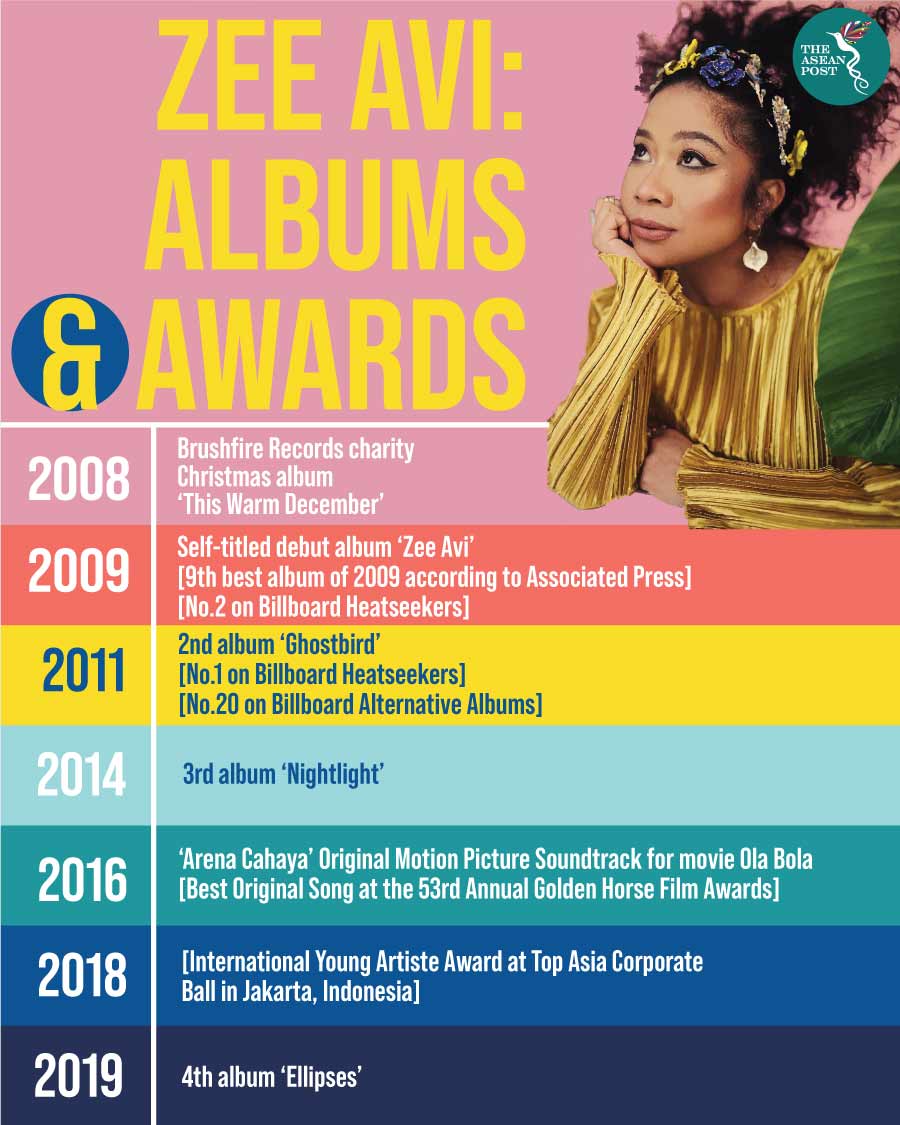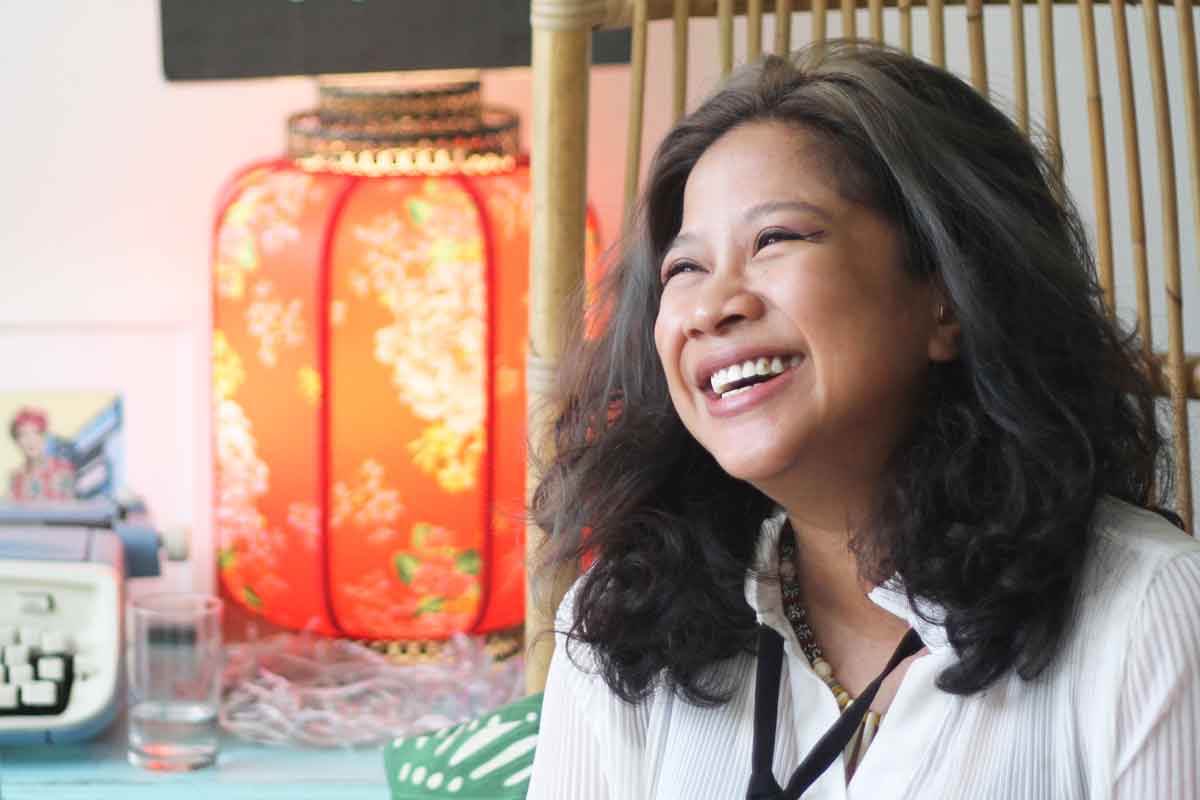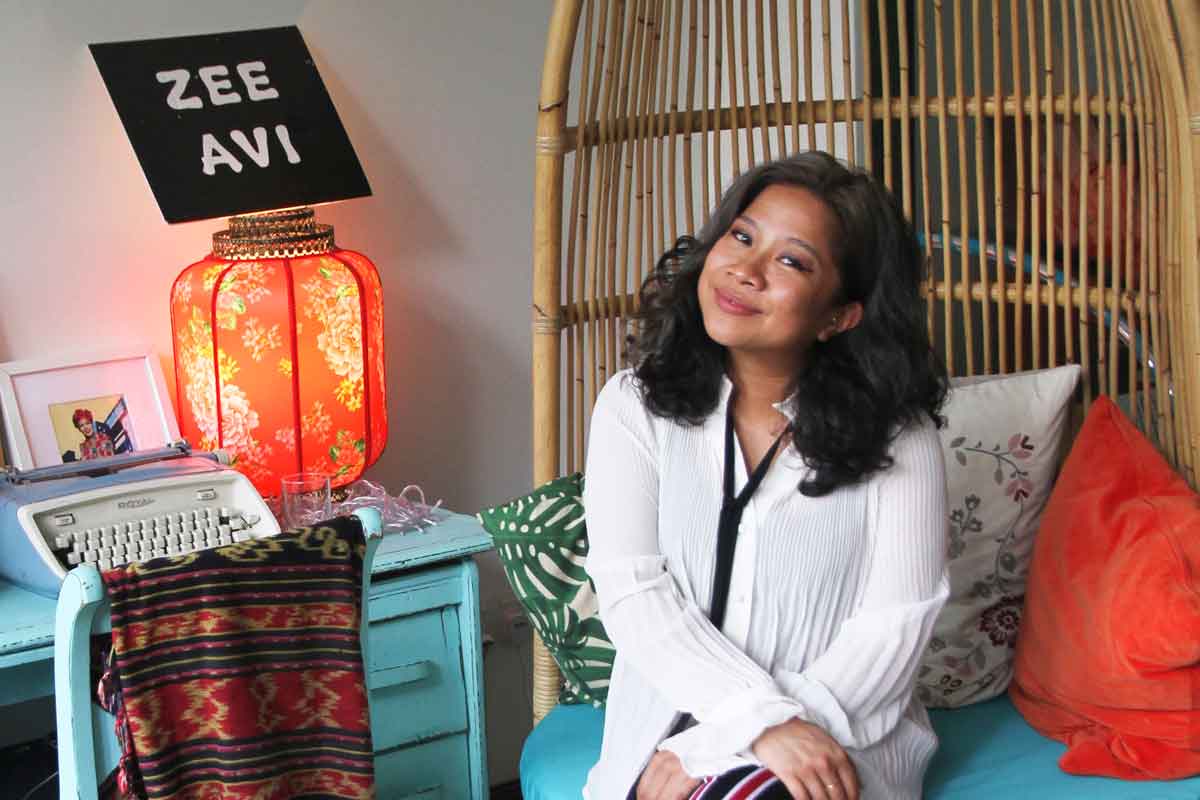Zee Avi is a Malaysian singer-songwriter from the small beach town of Miri, in Sarawak on the island of Borneo. She was first discovered on YouTube and was signed on to a record company, Brushfire Records. Describing herself as a story-teller with melodies, Zee Avi also has an affinity for the Arts and travelling.
Zee Avi has toured around the world playing headline shows and several prestigious festivals including the Rainforest World Music Festival, Byron Bay Festival and many more. She has released two albums and an EP and is set to release a new album this year. The ASEAN Post was fortunate to be invited into Zee Avi’s hipster abode to talk about her music, plans and how the awareness of ASEAN and the environment must go hand-in-hand.
Tell us about your upcoming album.
Zee Avi: My new album is going to be called ‘Ellipses’ which is my favourite punctuation: dot,dot,dot. Because life doesn’t stop here and the lessons are never-ending. So, it’s my evolution as an artist. The album is a collection of nine songs that I have written in the past seven years – through different periods of my life. It’s also a collaborative effort with my friends. It is special to me and I’m very excited! Musically it’s quite different because I feel that as an artist, you should want to experiment and let yourself grow organically. I kinda experimented with lots of different sounds and parted ways with the ukulele.
You have previously said that you will not be tied to a single genre and would continue to evolve. Do you still hold to this philosophy today?
Zee Avi: Absolutely! I think every artist should not hold themselves to one genre unless that is where their creative soul operates from, then that’s great! But I am purely a singer-songwriter. So, the cohesive elements in my work are my song-writing, my lyrics, and my perspectives. I love music, so I just make it. It doesn’t matter if it’s going to sound like a jazz song or folk song, which makes it hard for people to place it under one genre. In a way, it has given me a little bit of freedom. But sometimes, I have no control over how it's going to sound like. To me, music is very divine and it doesn’t come from me. It comes from a place that is higher than myself. Who am I to place limitations on it?
In your early song, ‘Kantoi’, you were able to relate to the younger generation with the use of ‘manglish’ (a mixture of Bahasa Malaysia and English). How important is language to your career as a singer and songwriter?
Zee Avi: I am such a language buff. Language is very important to me, especially as a traveller. I speak five languages and to me, music is a language too. Manglish is special too. I think, coming from Malaysia, the mix of languages and cultures inadvertently shines through my music, whether I do it on purpose or not. Kantoi is a colloquial or slang that the younger generation relates to. It was a song I wrote in 10 minutes, but it has become larger than itself. The song is known in Indonesia as well, because of the similarities in our language to theirs. I believe it's picking up pace again because of the generation Zs.
My new single, a song called ‘Saya, kamu,’ will be the first song written in Bahasa Malaysia.

Do you think your Borneo roots and culture have influenced your musical expression?
Zee Avi: I am very connected to my Borneo roots. Probably it’s the easiness and breeziness of my music or the island vibe that shines through my music. I also wrote a song in Bahasa Sarawak, called ‘Mee Kolok Siyek’. It is my love letter to Kuching. As a songwriter and story-teller, it would be great if folk music were to stay alive. I feel like its quickly getting forgotten. I love folk music because it’s a very poetic way to talk about people and the land. There are great stories to tell.
Do you feel burdened having to represent your country whenever you are overseas?
Zee Avi: Borneo is my roots so, of course, I represent it everywhere I go. Like the beads and clothes that I wear. My heart and soul, my perspective and how I feel is very much rooted in Borneo. It’s just that I don’t want to program myself to feel that way. Although I do feel it’s a duty sometimes to represent myself in a way that I can teach others about my country. Malaysia is an underrated country and Borneo even more so. When I meet new people, most of the time they say, ‘I’ve never met anybody from Malaysia let alone Borneo.’ I feel like that is an opportunity for me to let them know about our people, our culture. But I am a citizen of the world. And I represent my music.
Whatever it is, my passport is still red, and I still snack on ‘ulam belacan’.
Do you think music can enhance cross-cultural understanding?
Zee Avi: Absolutely! Music is the ticket for that! I feel so grateful every time I get to create a song. It’s always an opportunity to educate and inform myself first because I have to live my words for me to deliver them. Music is definitely a gateway for me to get my message across. Words are like magic. I think right now, even more so, we really do need to inform and remind people of unity. I just wish that people who have large platforms would do the same.
What would be the biggest change you’d like to see for women in the music industry?
Zee Avi: The music industry is still male-dominated. I would love to see more female music producers and female musicians. I would love for women to use our elegance and demure and the nurturing quality that we are naturally born with, into music. Maybe bring poetry back in song-writing, because we have it in us. Women also have different touch and sentimental qualities. I would be happy if more women were making decisions on where music should be and where music can go.
You are proof of how the internet can be such a powerful tool for budding artists. Do you have a message for aspiring musicians out there?
Zee Avi: A lot of hard work. The easy part of our job is to go on stage, doing what we love. Everything else, however, happens behind the scenes. When I started to learn the guitar, there was no internet, I had to buy a book. I come from a generation that grew up without the internet and the first generation to know what it’s like to wait for the internet. Music is my longest relationship. I respect it deeply. If I write a song, and my neighbour listened to it and said they like it, then that is enough for me.
Yet right now, a lot of young people are attracted to the fame aspect of it. So whenever young people ask for advice, I would say ‘If you’re doing it for fame, you’re doing it for the wrong reasons.’ Young people who want to venture into music, have a chance to advocate for love and make music that sends out positivity. So young people, please write more ‘woke’ songs with conscious messages.

Hope is very much embedded within your songs. What do you hope for the future?
Zee Avi: I like how you caught that about my songs because when people listen to my songs, it is very easy but it is also a world that I created. To me life presents challenges, but just because you are going through a bad patch doesn’t mean you have to pair it with a minor chord.
I recently awakened into an awareness of where mother earth is at right now and it scares me. I went through the whole climate blues - my first reaction was to be sad, then angry and then frustrated. Eventually, I got to the point that I had to lead by example. I would say this is something I am trying to advocate, though I am still new to the journey of sustainability and eco-consciousness. It is easier said than done. But you have got to be more hopeful. So, I hope people would be more hopeful too. And hopefully, I’d be able to live what I preach.
What is next for Zee Avi?
Zee Avi: Lunch? (laughs) I like to take things a moment at a time and not overwhelm myself with planning. I want to continue to write music and to perform. For musicians, we don’t have office hours.
Related articles:
